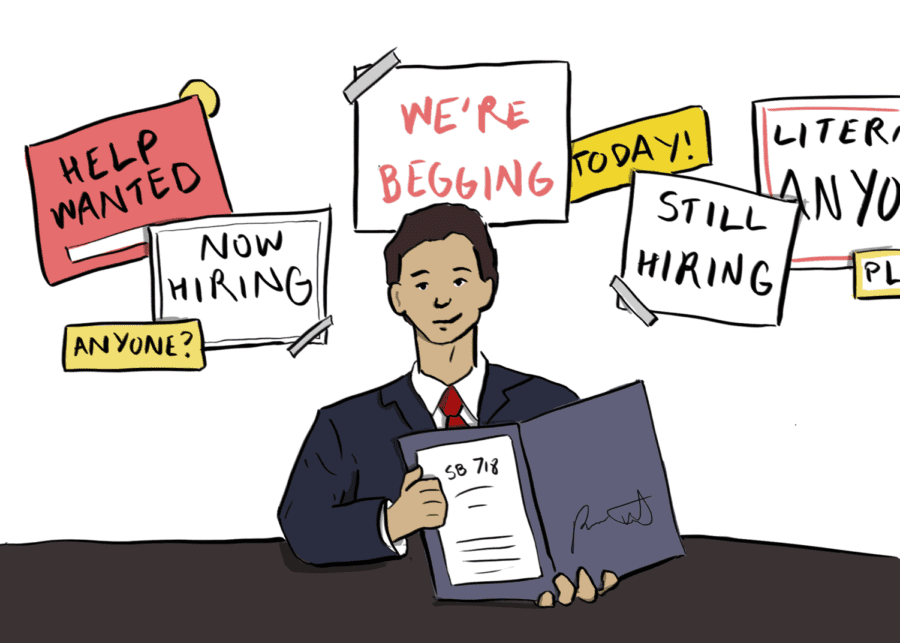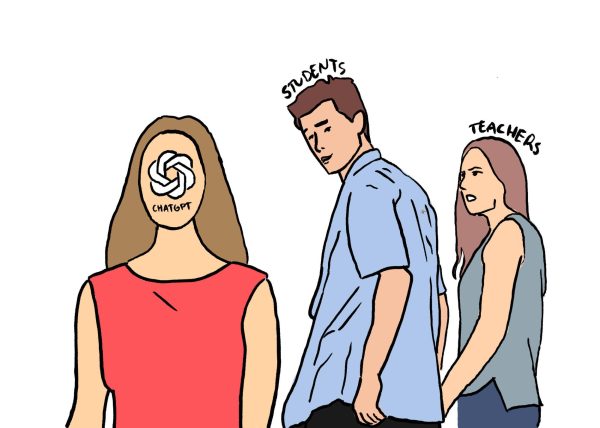SB 1718: A ‘solution’ that will become a problem
photo by Josephine Lim
Going into effect July 1, SB-1718 is meant to restrict illegal immigrants’ work opportunities and facilitate deportations. The issue that DeSantis may not have foreseen is the economic problems these labor shortages will cost.
As a way to combat the immigration crisis, Florida Governor Ron DeSantis passed the harshest and most controversial anti-immigration law in the nation. Known as SB-1718, the bill is set to require employers with more than 25 employees to use an E-verification system that allows the accurate identification of legal status of the worker, preventing illegal immigrants from having jobs. The bill also condemns employers by giving them harsh consequences, such as a $10,000 fine or 15 years of prison for knowingly hiring illegal immigrants. Additional parts of the bill include the requirement of hospitals who accept Medicaid to ask for legal status and revoking out-of-state driver licenses if immigrants cannot prove legal residence.
As much as DeSantis tries to convince himself that this bill will help solve the immigrant problem, the real effect will be a damaged economy for the state of Florida. Sure, the law is doing exactly what DeSantis wanted to accomplish, driving illegal immigrants out and helping sway conservatives to vote DeSantis as the next president, but all at the cost of removing the backbone of key economic industries.
For years immigrants have heard a repeated argument for anti-immigration: “They are taking our jobs.” Newsflash: The jobs that immigrants are taking are those that citizens won’t take due to long hours and exhausting, low-paying working conditions.
In Florida, 500,000 immigrants work in the agriculture industry and 60% of those workers are suspected to be illegal immigrants. Another 37% of immigrants work in construction areas and the rest can be traced back to working in other low wage jobs. The irony of this situation is mainly rooted in the H-24 Temporary Agricultural Program that brings immigrants to the United States in order to meet workforce needs, which have increased from 79,000 to 250,000 since 2020. We clearly need a strong workforce to feed us, so why are we making laws that drive them out?
The law is set to go in place July 1, but since it was signed the negative impacts have already been felt. Miami’s construction workers refuse to go to work in fear of deportation, and many other families are relocating outside of Florida and leaving their jobs behind. Social media campaign has started for truck drivers to boycott by refusing to drive to Florida and sending produce from outside-agricultural areas. It is only a matter of time until this half-thought solution becomes a further economic problem that Floridians will not be able to handle.
Your donation will support the student journalists of Hagerty High School. Your contribution helps us publish six issues of the BluePrint and cover our annual website hosting costs. Thank you so much!







